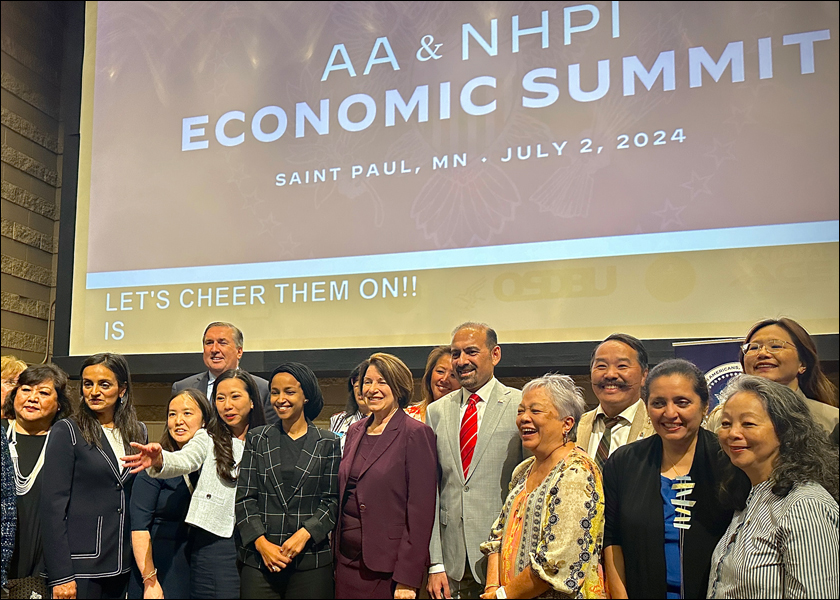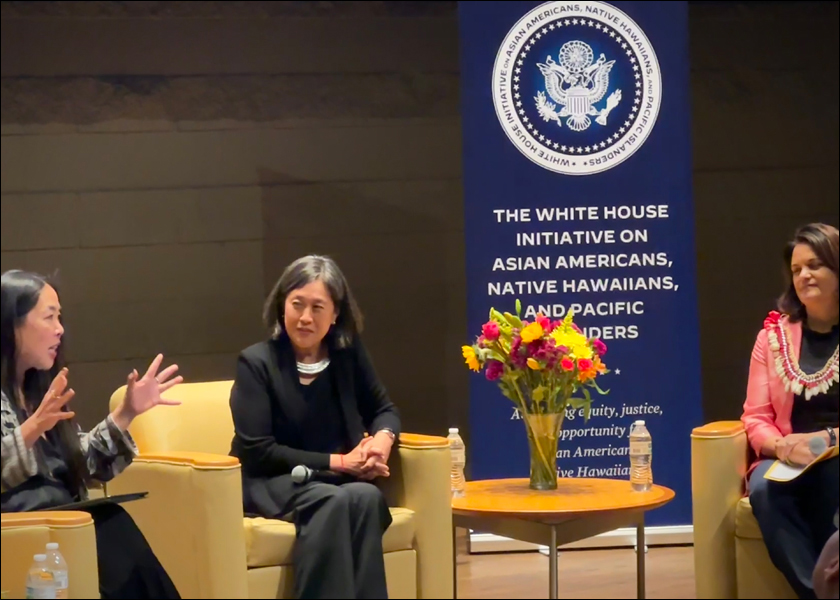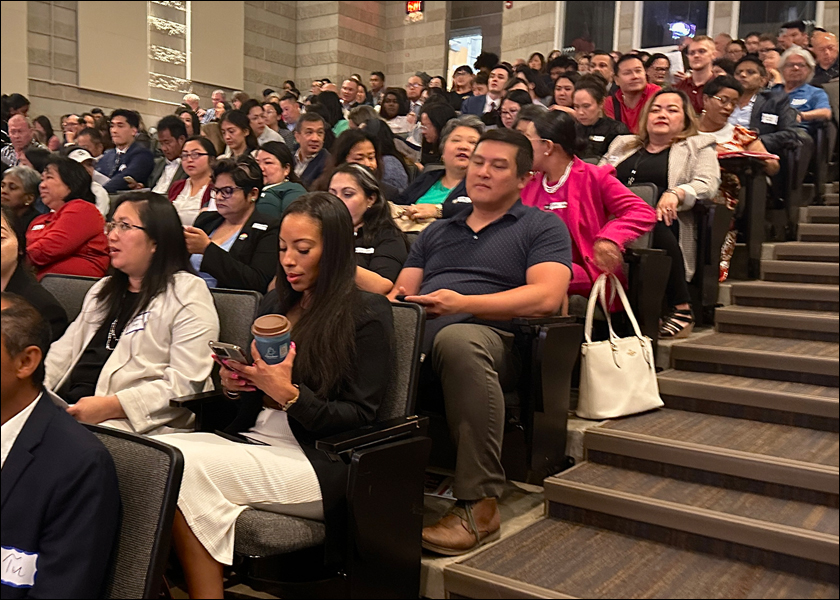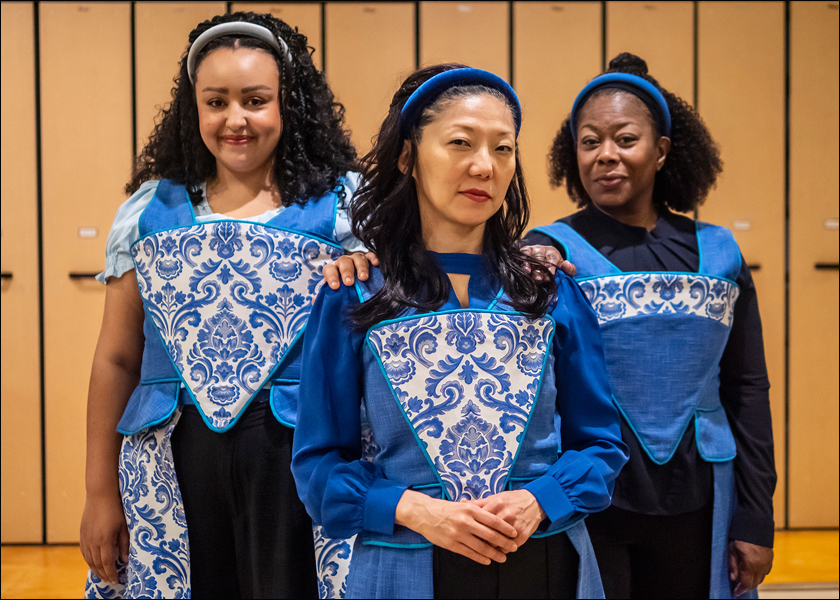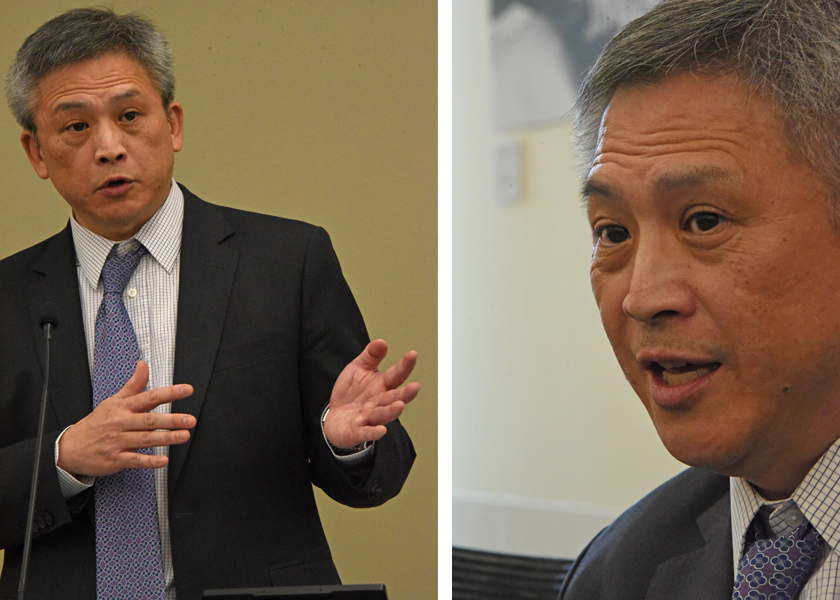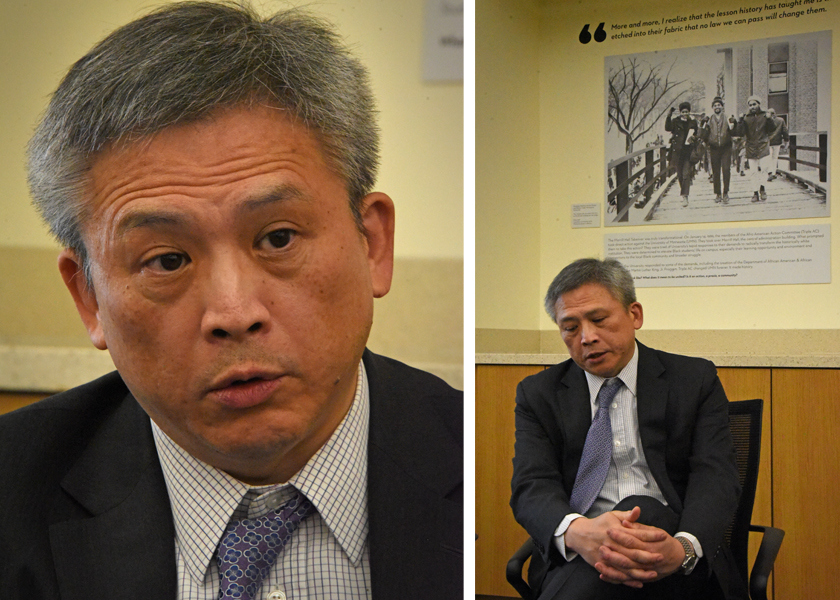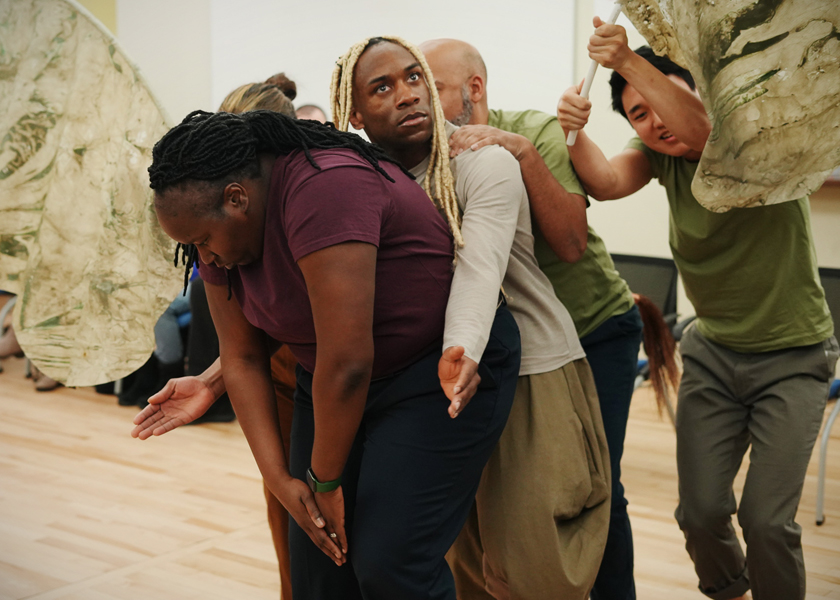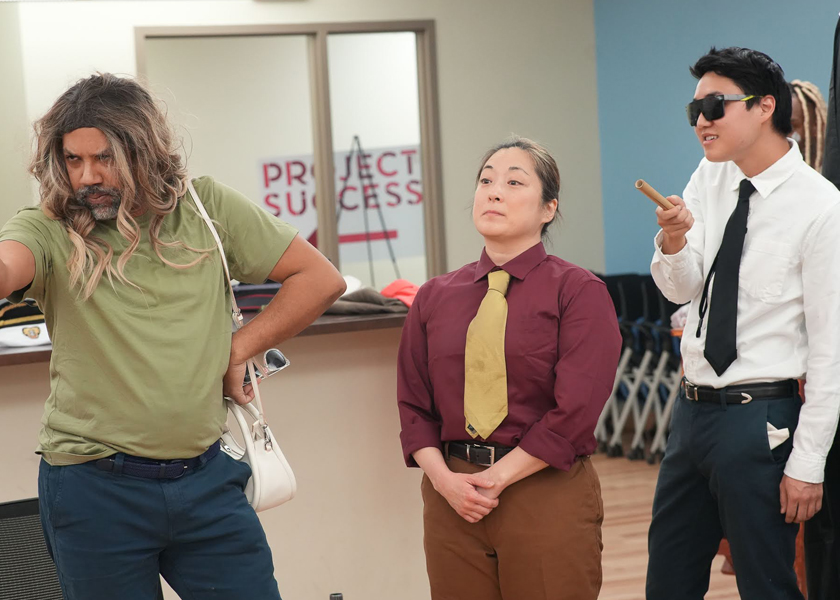Dance company led by Korean American artistic director mounts annual New York festival
| By Anne Holzman (Winter 2025)
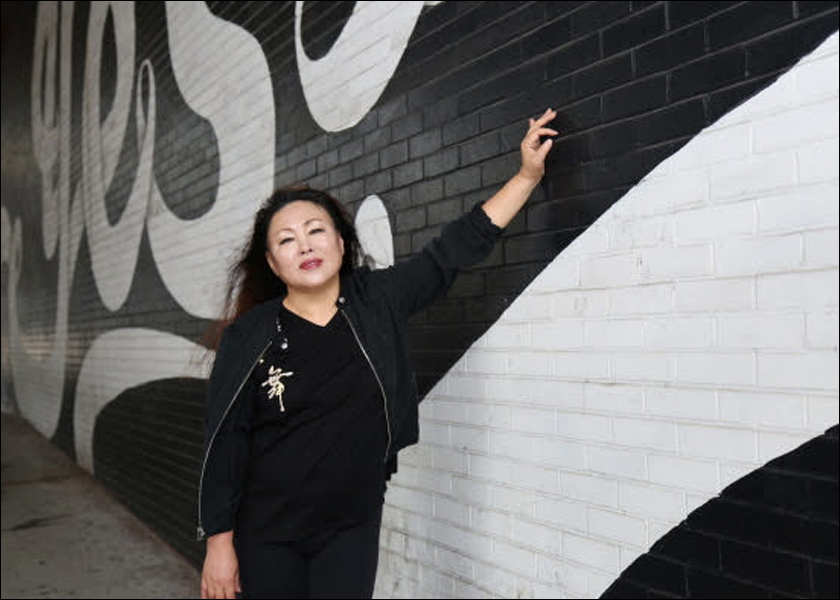
The ninth annual White Wave SoloDuo Dance Festival was fast approaching when Korean Quarterly interviewed choreographer and company director Young Soon Kim about this latest project and her career in dance.
Since Kim founded the White Wave company in 1988, they have performed her original contemporary dance choreography at their home base in New York City and toured worldwide. Having established her own career, Kim said, she added annual festivals to help other choreographers get started. First came the DUMBO (a neighborhood in Brooklyn) showcase for visiting companies, with an emphasis on experimental techniques.
But Kim realized that many choreographers begin with only one or two dancers on the stage. So she mounted the SoloDuo festival, featuring shorter works. Kim said her aim is to provide a service to the dance community, “to promote young and rising choreographers on the New York stage.”
New York is undoubtedly the contemporary dance capital of the world. It’s also a difficult, expensive place to rent a venue and produce a show. Kim secures a stage, helps the visitors set up the technical elements, and takes care of the marketing and promotion for each festival show.

This year’s SoloDuo festival will feature 33 dances divided into three shows. Kim said she takes applications from all over the world and interest was high this year, with 108 entrants. This year’s winners come from all over the U.S. as well as from Switzerland, China, Italy, Israel, England, Mexico and Netherlands.
Each dance is six to eight minutes long. The visiting performers will get a technical rehearsal to work out lighting, sound, and other stage particulars, and a dress rehearsal – and then it’s show time. Shows will be at the Dixon Theater in lower Manhattan, New York City. They are scheduled for February 13 at 7:30 p.m. and February 14 at 7 and 9 p.m.
Young Soon Kim grew up in South Korea and came to the U.S. in 1977 on a Martha Graham company scholarship. In an interview with KQ in January, Kim said she studied “intensively” with the Graham group, practicing what’s generally called “modern dance,” and then became interested in a newer style known as “contemporary.”
She danced with Jennifer Muller’s company, in the tradition of Jose Limón, which she described as “energetic” and “extremely technical.” Kim started the White Wave Young Soon Kim Dance Company and began developing her own approach to choreography and production.
She said that while there are no direct references to traditional Korean dance in her work, “I came from Korea and my cultural background is in my blood.” One of Kim’s interests is working with composers; a highlight of her developmental years was a collaboration with jazz star Dave Brubeck. New York-based composer Marco Capelli is a current partner. She often uses live music in her productions. Her job also involves hiring costume designers, and she said she was pleased to work with one who won an Oscar film award.
Kim continues as the main choreographer for her company, but she said that like many contemporary choreographers, she works “very closely” with the dancers, takes inspiration from them, and will often share credit for the choreography with one or more of the dancers. There are usually nine to 12 dancers in the company.
Kim’s festival career started dramatically. She had planned her first big event with guest performers, the first DUMBO festival, and was just weeks away from producing it in lower Manhattan when the city was attacked on Sept. 11, 2001. “I could virtually see the World Trade Center falling,” she recalled.
Like so many other artists, she searched her soul for how her organization should respond. Should she just cancel the show out of respect for those who suffered so many losses? She decided, she said, that “art is for giving people transforming vision and uplifting the spirit.” The show went on as planned, in a city still reeling from the disaster.

This year’s DUMBO festival, its 24th annual event, will take place the last week in June at the Mark Morris Dance Center and is expected to feature some 60 companies. White Wave has toured internationally in Europe, Asia, and the Americas. Producing dance shows in foreign countries presents unique challenges and opportunities, Kim said. For example, some years ago the company performed at a venue in Gwangju, South Korea, with live musicians and video. Kim said she appreciated the unusually good technical infrastructure there.
She returns to Korea often with her company and said she has noticed a dramatic increase in contemporary dance appreciation. She said the global Korean culture boom, which started with food and pop music, appears to be extending to contemporary dance, with television contests and a social media presence that draws broader audiences to her shows. “Contemporary dance in Korea – not only numbers, but also the quality – is increasing each year,” she said.
Writer’s note: Video clips of White Wave’s work, including scenes from the performance at the Asian Arts Center in Gwangju, South Korea, are at the following link: https://www.whitewavedance.org/white-wave-dance

